 The following funding opportunities have been announced. Please follow the links for more information.
The following funding opportunities have been announced. Please follow the links for more information.
Arts and Humanities Research Council
The AHRC’s Leadership Fellows scheme provides time for research leaders, or potential future research leaders, to undertake focused individual research alongside collaborative activities which have the potential to generate a transformative impact on their subject area and beyond. Funding is provided for research lasting between six and 18 months with amounts between £50,000 and £250000 at Full Economic Cost available. Closing Date: 30/9/16
British Academy
The Neil Ker Memorial Fund was created to promote the study of Western medieval manuscripts, in particular those with a British interest. Awards do not normally exceed £2000 and may last up to twleve months. Closing Date: 2/12/15
The Stein-Arnold Exploration Fund was created for aiding research on antiquities/historical geography/early history/early art of parts of Asia. Awards are available up to £2500. Closing Date: 2/12/15
Engineering and Physical Sciences Research Council
The EPSRC and the Korea Institute of Energy Technology Evaluation and Planning (KETEP) wish to develop collaborative projects between the United Kingdom (UK) and the Republic of Korea (ROK) in the field of Smart Grids. up to £2m is available from the EPSRC and equivalent resource will be available within the ROK. The EPSRC-KETEP Call for Call for Collaborative Research projects may be up to three years in duration. Expressions of Interest (EoI) Closing Date: 25/11/15 at 16:00
Innovate UK
Innovate UK is offering 4 businesses up to £35,000 (excluding VAT) each through its “Innovation in urban spaces” scheme to encourage innovation around smart urban spaces across the themes of engaging spaces, active citizenship and urban travel. Closing Date: 24/11/15 at Noon
Natural Environment Research Council
As part of the Oil and Gas Innovation Programme, a new opportunity on Decommissioning. NERC will invest up to £1m in a cohort of projects lasting six to 12 months which translate into existing NERC remits. Closing Date: 3/12/15 at 16:00
Wellcome Trust
Research Fellowships are available to support humanities and social science scholars who are not in an established academic post who wish to conduct research in any area of human and animal health. Fellowships will provide research expenses and a salary. Preliminary application Closing Date: 22/1/16
If you are interested in submitting to any of the above calls you must contact RKEO with adequate notice before the deadline.
Please note that some funding bodies specify a time for submission as well as a date. Please confirm this with your RKEO Funding Development Officer
You can set up your own personalised alerts on Research Professional. If you need help setting these up, just ask your School’s/Faculty’s Funding Development Officer in RKEO or view the recent blog post here.
If thinking of applying, why not add notification of your interest on Research Professional’s record of the bid so that BU colleagues can see your intention to bid and contact you to collaborate.


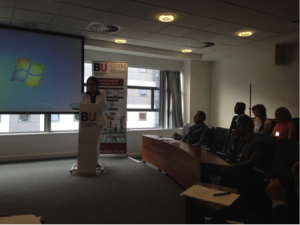
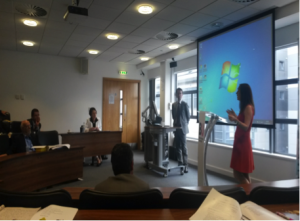



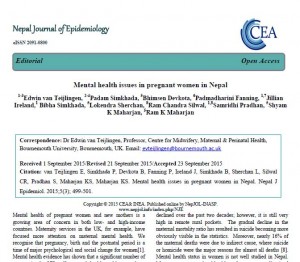
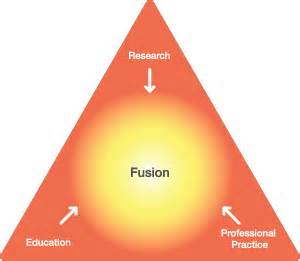
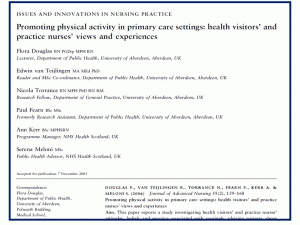
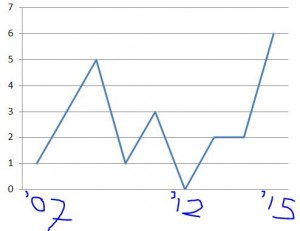
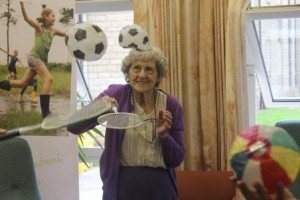


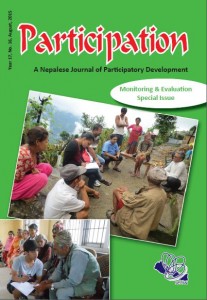

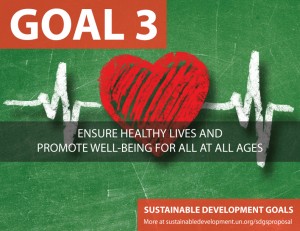

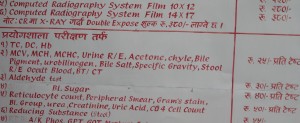

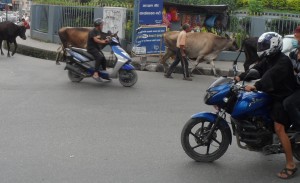 Today I attended a contract-signing meeting at the Department of Health, Physical and Population Education at Nepal’s oldest university, Tribhuvan University (TU).
Today I attended a contract-signing meeting at the Department of Health, Physical and Population Education at Nepal’s oldest university, Tribhuvan University (TU). Midwives (ANMs) about the key mental health issues in pregnancy and in the months after birth. A local charity Green Tara Nepal (GTN) will support the work through some of the curriculum design, sensitising UK volunteers to live in rural Nepal, assisting in translating, as well as helping to recruit the local health workers. The two UK universities have a long history of working with GTN as well as its sister organisation Green Tara Trust (GTT), a Buddhist charity based in London. The new project will be based in Nawalparasi in the sub-tropical part of the country bordering India. The target population consists of grassroot health care practitioners since there are no doctors in these rural villages.
Midwives (ANMs) about the key mental health issues in pregnancy and in the months after birth. A local charity Green Tara Nepal (GTN) will support the work through some of the curriculum design, sensitising UK volunteers to live in rural Nepal, assisting in translating, as well as helping to recruit the local health workers. The two UK universities have a long history of working with GTN as well as its sister organisation Green Tara Trust (GTT), a Buddhist charity based in London. The new project will be based in Nawalparasi in the sub-tropical part of the country bordering India. The target population consists of grassroot health care practitioners since there are no doctors in these rural villages.










 From Sustainable Research to Sustainable Research Lives: Reflections from the SPROUT Network Event
From Sustainable Research to Sustainable Research Lives: Reflections from the SPROUT Network Event REF Code of Practice consultation is open!
REF Code of Practice consultation is open! BU Leads AI-Driven Work Package in EU Horizon SUSHEAS Project
BU Leads AI-Driven Work Package in EU Horizon SUSHEAS Project Evidence Synthesis Centre open at Kathmandu University
Evidence Synthesis Centre open at Kathmandu University ECR Funding Open Call: Research Culture & Community Grant – Apply now
ECR Funding Open Call: Research Culture & Community Grant – Apply now ECR Funding Open Call: Research Culture & Community Grant – Application Deadline Friday 12 December
ECR Funding Open Call: Research Culture & Community Grant – Application Deadline Friday 12 December MSCA Postdoctoral Fellowships 2025 Call
MSCA Postdoctoral Fellowships 2025 Call ERC Advanced Grant 2025 Webinar
ERC Advanced Grant 2025 Webinar Update on UKRO services
Update on UKRO services European research project exploring use of ‘virtual twins’ to better manage metabolic associated fatty liver disease
European research project exploring use of ‘virtual twins’ to better manage metabolic associated fatty liver disease